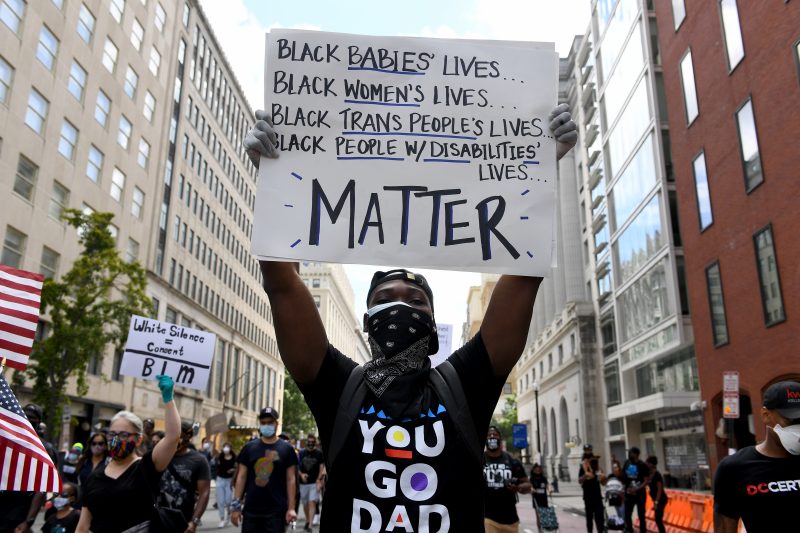In the abstract, Florida Gov. Ron DeSantis’s (R) defense of changes to discussion of slavery in his state’s schools is baffling. The state’s new educational standards suggest that enslaved people “developed skills which, in some instances, could be applied for their personal benefit,” as though being considered property was simply a step on the career ladder.
Asked about it, DeSantis offered that the curriculum — which he insisted wasn’t something he produced — would probably “show that some of the folks that eventually parlayed, you know, being a blacksmith into doing things later in life.” Needless to say, this is not generally how historians view the institution of slavery.
But DeSantis’s argument isn’t offered solely as a governor of a large state. It is also offered as a guy who is running for the Republican presidential nomination in 2024 and, in that context, his efforts to downplay the extent to which Black Americans suffered from slavery make much more sense.
Last week, YouGov published polling data showing a divide in how Americans view the effects of racism. Poll respondents were asked whether racism against various racial groups was a problem now and the extent to which it had been in the past.
Republican respondents were more likely to say that racism against Black people was lower in the past than were White respondents or respondents overall. (Perceptions of racism in the past are shown with triangles on the graph below.) They were also less likely to say that racism against Black Americans is currently a problem (shown with a dot) — and were about half as likely as respondents overall to say that racism is currently a big problem (indicated with a dashed line) for Black Americans.
At the bottom of that chart, you can see that more respondents believe racism is a problem for White people than was the case in the past. That’s much more true among Republicans (a group that is, of course, overwhelmingly White). In fact, Republicans are more likely to say that racism is a problem for Whites than they are to say the same of racism targeting Blacks. A third of Republicans think racism against White people is a big problem, compared with a quarter who say the same of racism against Black people.
If we directly compare those two racial groups, the difference between Republicans and other groups (of which Republicans are members) becomes clear. Less likely to say anti-Black racism was a problem in the past; more likely to say anti-White racism is a problem now.
This comports with YouGov’s lengthy history of polling on the extent to which different groups face discrimination. The pollsters asked that question about racial groups in 2013, 2015, 2019 and earlier this year. In this polling, perceptions of discrimination against different groups has risen in the past decade. (The question asked by YouGov changed slightly, as did the responses. In 2013 and 2015, the choices were whether groups faced “a great deal” or “fair amount” of discrimination; in later polls, it was “a lot” or “some.”)
Again, notice the difference among Republicans. If we overlay the White and Black perceptions, you see that Republicans are as likely to say that White people face discrimination as they are to say the same of Black people.
Three in 10 Republicans say White Americans face a lot of discrimination, compared with a quarter of Republicans who say the same about Black Americans.
This is the electorate from which DeSantis is eager to wring votes. To present slavery as less bad than people might think is simultaneously to diminish the extent to which Black people suffered at the hands of enslavement and to diminish the culpability of those who enslaved them. It is easier for a White person to consider, say, being yelled at on social media as discrimination if institutional efforts to treat Black people differently are waved away.
YouGov had a question on that, too. Only about a third of Republicans think that there is racism embedded in social, economic and legal structures in the United States. A majority of Americans overall do.
































